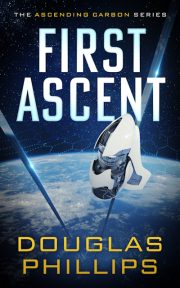How to Write with a Co-author

by Stewart C Baker
Fiction writing is often presented as an intensely solitary pursuit, but look at the end of a published novel some time and you’ll see the author thank at least a dozen people for their help. And then there’s co-authoring…
There are as many different ways to share authorship of a story as there are combinations of people. Some prefer to split up the tasks of writing, with one author creating an outline that the other drafts from, or vice versa. Others might draft every other scene, or only write a particular character’s sections, and so on.
The benefits of co-authoring are potentially great: Each writer has a chance to learn new habits and strategies, and brainstorming can go much more quickly with two people involved. But, as with any kind of partnership, it’s important to establish early on how the relationship is going to work. Making assumptions about the writing process and your expectations for your co-author can lead to misunderstandings and stress, and has the potential to end friendships and scuttle careers.
Ideally, before you even start writing you and your new co-author will come to an understanding on how you’ll handle all the fine details of writing, submitting, and selling your work. Here are a few of the questions you may wish to consider:
- What are your writing processes? How do they differ? – Discuss how you usually create stories. Do you outline? How thoroughly? What is your revision process? Experiment until you have a method that works for both of you–or at least one that one of you is willing to try.
- What are you going to write? – Do you like to write funny stories? Dark ones? Fantasy? Sci-fi? Weird, unclassifiable things? If your co-author isn’t already familiar with your work, talk about the things you usually like to write. If they are, discuss the things you want to write but have never dared to try and the topics or themes you don’t want to touch on. Likewise, it’s important to be on the same page for the scope of your collaboration. Are you writing a single story, a set of linked stories, a novel, or a series?
- Who will do what? – If you’re working from a draft of a story one of you have already completed, what still needs to be done? If you’re both writing the draft, how will you divide the labor? If you’re outlining your story, will you both be working on the outline or just one of you? Is one of you a better reviser? Better at dialogue? Find your respective strengths and weaknesses and play to them. How will you split the proceeds if you sell the story?
- What’s your timeline? – Nail down some expectations about when you want the story done and out on submission. Setting up a timeline ahead of time means neither of you has to stress about not living up to your end of the collaboration.
- What if it fails? – Life happens. Set some guidelines for what to do if one of you can’t finish the story you’re working on, or just realizes that the collaboration isn’t working. This can be particularly troubling if you don’t think about it ahead of time, so sort it out ahead of time and save yourselves the ruffled feathers and awkward unanswered e-mails.
No matter how you and your new co-author answer these questions (and even if you don’t), the discussion will likely teach both of you something new about the craft of writing. In the short term, it’s likely to make your collaboration more successful, as well.
•••
Stewart C Baker is an academic librarian, speculative fiction writer, and occasional haikuist. His fiction has appeared in Writers of the Future, Nature, Galaxy’s Edge, and Flash Fiction Online, among other places. Stewart was born in England, has lived in South Carolina, Japan, and California (in that order), and currently resides in Oregon with his family—although if anyone asks, he’ll usually say he’s from the Internet.


